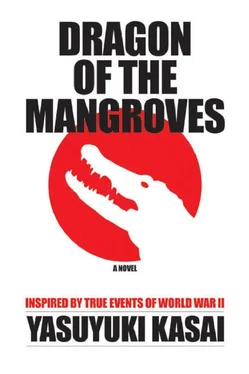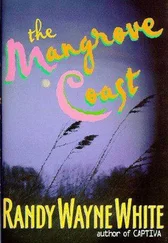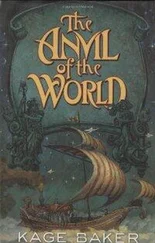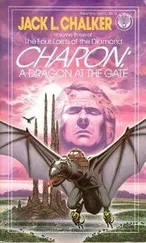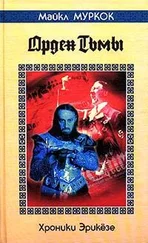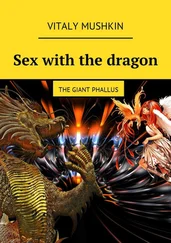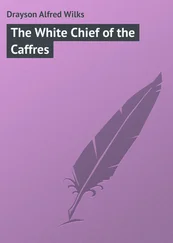He had frozen on the spot. The dragon had breathed out sharply, as if threatening him. The bridge of its nose had wrinkled deeply. It had been a clear sign of hostility.
When it had bared its fangs, rows of sharp teeth had shattered the dipper.
Sensing danger, he had stepped back further. But he had had no chance. The dragon had raised its head and charged at him with lightning speed.
He had been resolved to the fact that he would die. But at the moment the fangs had been about to bite at him, he had heard another voice from nowhere apparent again: “Wake up, Kasu! How long are you going to sleep?”
It was a voice of Superior Private Hirono, the loader of HMG Tomita Squad.
His dreams always ended the same way. Strangely, he had had the same dream ever since the Army had drafted him.
In his hazy view, Kasuga found Hirono frowning at him. Then behind Hirono, he saw some of their ammo bearers sleeping at the bottom of the trench, where the sun was relentlessly blazing down. The men showed clear signs of total exhaustion on their faces, which were smudged with sweat and dirt.
Kasuga could enjoy the cool filling the trench when he came off sentry and went to sleep in the early morning. But now it was gone, replaced by stifling heat.
No wonder he’d had such a nightmare. Even his trousers were wet with sweat.
“Sorry, but Sarge told me to wake you up and set you on the gun.”
“Right now?”
“No need to hurry. Hey, you sweat a lot. Are you all right? If you’re hungry now, I’ll give you some noodles. Let’s eat.”
Hirono took out his mess kit and served boiled noodles on the tray. Kasuga gave thanks and ate them with his hands. He had lost his own chopsticks long ago in the confusion. The noodles were lukewarm and only seasoned with salt but tasted good because he had lost some salt by perspiring.
“Hirono, is there any sign of enemies?”
“I don’t know,” answered Hirono.
Kasuga asked again. “I’ve heard those riflemen were storming toward tanks when the enemy smashed HMG Arakawa Squad in the last battle. Why didn’t they use antitank guns?”
“How can I know that? I didn’t hear any of the friendly artillery, though I didn’t watch the battle myself. Even if we have any guns, that humongous tank is too much for our thirty-seven-millimeter gun. Engli don’t give a shit about it.”
“Where are our antitank guns then?”
“How am I supposed to know that? Maybe HQ saves them somewhere.
Somebody says they sent one or two toward Myinkhon Creek.”
“Why there?”
“It may be fighting against Engli gunboats there. Those damned enemies are going to cut our line of retreat and make us mice in a trap.”
“I see…”
“If they break through our line here, it’ll be terrible. Maybe a banzai charge or something worse is waiting for us all,” Hirono said as he slurped his noodles.
Kasuga had to understand how the enemies carried out their advance after they had completed the landing operation. According to Sergeant Tomita, this was a modern war, utilizing aircraft, battleships, artilleries, armors, and infantries in three-dimension tactics.
Airstrikes always reached their height when accompanied by the naval bombardments from destroyers sailing down the Bay of Bengal. Confronted with this ferocity, Japanese outposts made from palm logs were quite insignificant. Thus the enemy destroyed almost one-third of the defenses Kasuga and others had toiled to set up during their occupation, which would be a year and a half sometime this week. Artilleries opened fire, and a land force advanced on a full scale.
Struck by the heavy rain of bombs and shells, all Japanese soldiers, including Kasuga himself, could do nothing but bear it in the bottom of half-wrecked trenches. If the enemy had charged with bayonets, they might have stood a fair chance of having a good war. But the enemy’s first charge was with tanks, and the Japanese had no weapon able to contend with them.
After the Battle of Ondaw, Sixth Company pulled out of Hill 353 and continued moving southward. Casualties were relatively minimal. It was natural because the Japanese repeated retreats under cover of darkness every time strong enemies came up.
Kasuga had once been taken aback to hear Sergeant Tomita say delightfully just before one of those retreats, “How smart the Sixth Company commander is!
There’s a big difference between him and that shit-faced Binchoku, though both are officers of this same battalion.”
Tomita was a man with a reputation as a combat-hardened veteran. He had taken part in the Battle of the Great Wall, Rehe-sheng, China, and had been up against the ruthless attack of Chiang Kai-shek’s Regular Army there. While all others were retreating, Tomita had held the machine gun position alone and had kept firing at the rushing Chinese, which had kept their positions intact.
Kasuga had heard old regulars speculating many times about why Tomita
didn’t get the Order of the Golden Kite. He surely was worthy, thanks to the initiative he showed in Hill 353 when they had tried knocking P-38 interceptors out of the sky, or for the fact that he kept the composure in the Battle of Ondaw when the enemy started firing first.
But now the Sixth Company retreated like a moonlight flit. Tomita always made them set the gun further back than ordered, at his own sweet will. Even when they engaged with enemies, he was noncommittal and wouldn’t order them to open fire. Sometimes he even let the whole squad draw back from a designated position without Second Lieutenant Jinno’s permission.
Kasuga wasn’t sure whether the fact that Tomita Squad hadn’t suffered any casualties yet was thanks to him. Anyhow, he couldn’t believe the attitude of his squad leader.
Yet he also noticed days when Hirono tended to protect himself. Hirono was a big guy, well over six feet tall. He could lift a heavy barrel of machine guns as if it were nothing. He had a Judo black belt. Though Kasuga was slightly better in marksmanship, Hirono was more than a match at bayoneting skills or wrestling.
He was a strong warrior, without a doubt. But all of this man’s concern was limited to his own life. For weeks he had been worrying about a banzai charge.
Arakawa Squad, their fraternity under Jinno Platoon, went out to support tank-busters and got hit with a mortar shell. It killed three men, including the squad leader himself. It was natural for any man to flinch in terror. But they were fighting a war now. There was nothing for fearing death at that late date.
If the enemies got Ramree, sooner or later, they would also get the mainland.
Then Malaya and Java would be added to the list. If the British reopened the Burma Road blocked by the Japanese Army for a long time, a tremendous amount of supplies would flow into China. What would become of the Japanese Expeditionary Force fighting against heavy odds there? The Japanese Imperial Navy had already lost the Pacific. If the Army lost Indochina and China, it would get harder for the Japanese to retain even their homeland.
It was time to shield their land and families from the evil design of foreign sav-ages. However far they may flee, as long as their retreat is blocked—as Hirono says himself—there was nothing to do but resist. It was a little late to worry now.
The only thing needed was the fortitude to die silently. Kasuga thought he was prepared for it.
“Hey, you! What’re you doing here? Go back right away!” a raucous shout pierced the ears of two taking a rest after a meager lunch.
Kasuga looked back and found Second Lieutenant Jinno standing there. Jinno was excited. Since the machine gun of Arakawa Squad had been destroyed, Tomita’s was the only one under him now. So Jinno had stayed with Tomita Squad all the time for those several days, continuing to nag and pick holes in them, always hysterically, and making himself a real nuisance. Motivated by his cantankerous look, Kasuga and Hirono got up and began packing their bags. But Jinno abruptly ordered, “Leave your equipment here. We’ll move out soon.”
Читать дальше
